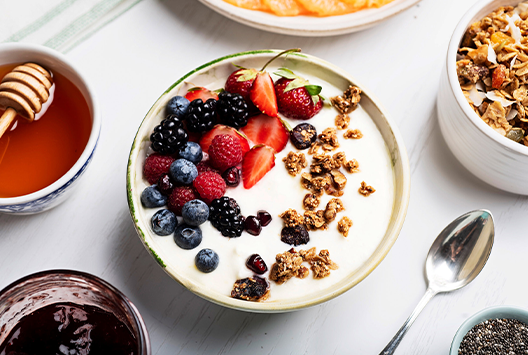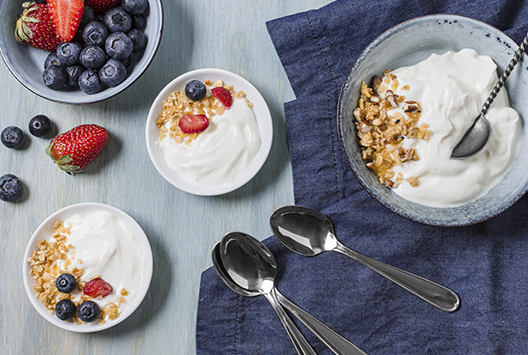
Different Ways Cow's Milk Can Help Boost Your Immune System
Similar
The human body is designed to build a strong immune system and many different factors come into play to help make that happen. One such factor is nutrition. Your meal plan and the products you consume daily can help make or break your immunity. Did you know that cow’s milk can help build stronger immune systems? Cow milk contains a range of nutrients - including proteins and vitamins - that are essential for the development and function of the immune system.
So, what are the benefits of drinking cow milk?
1. It's a complete meal
Cow milk has many nutrients that the body needs, such as vitamins A and D, protein, zinc and selenium, making it a complete meal on its own. All of these nutrients are critical for maintaining a strong immune system.
2. It's a good source of protein
Protein is an essential nutrient for the immune system. It helps build and maintain the body's tissues and organs, including the immune system cells. Cow milk is a good source of protein, with each cup containing about 8 grams of protein.
3. It's a good source of Vitamin A
Vitamin A is important for the development and function of the immune system. It helps maintain the skin's health, which is the body's first line of defense against infection. Cow milk is a good source of vitamin A; each serving of milk contains about 15% of the daily recommended intake.
4. It's good for your bones
One of the benefits of cow milk is that it is good for your bones. Cow milk contains high levels of calcium and other minerals essential for the formation of strong bones.
5. It helps prevent diabetes
Cow’s milk contains high levels of insulin-like growth factor-1 (IGF-1), a hormone that has been shown to reduce the risk of diabetes. Cow milk also contains high levels of calcium, which can help to improve insulin sensitivity and reduce the risk of diabetes. However, because milk contains carbs, drinking too much milk may cause your blood sugar to spike, so it is best to get the advice of a professional nutritionist regarding your intake.
6. It is brain food
Cow milk is also a great source of brain food. It contains high levels of omega-3 fatty acids, which are essential for brain health. Omega-3 fatty acids are known to improve cognitive function and reduce the risk of Alzheimer’s disease.
7. It fights depression
Depression is a serious mental illness that can have a devastating impact on a person’s life. Cow milk contains high levels of tryptophan, an amino acid that is effective in treating depression.
8. It lowers cholesterol
High cholesterol is a risk factor for heart disease. Cow milk contains high levels of saturated fat, which can help lower cholesterol. Saturated fat is known to increase the level of HDL cholesterol, which is the “good” cholesterol, and to decrease the level of LDL cholesterol, which is the “bad” cholesterol.
The bottom line
As we’ve seen above, cow's milk is an excellent source of nutrition and can help you build a strong immune system. It is packed with essential nutrients needed to keep your body healthy and fight infection. It also contains antibodies that can help protect you from disease. So, drink up and enjoy the benefits of cow's milk!
Are you looking for high-quality dairy products in Qatar? Baladna provides authentic, fresh, and high-quality dairy products, including a wide range of milk products. These include skim milk, full fat milk, and a variety of flavored milk. Get yours today.



